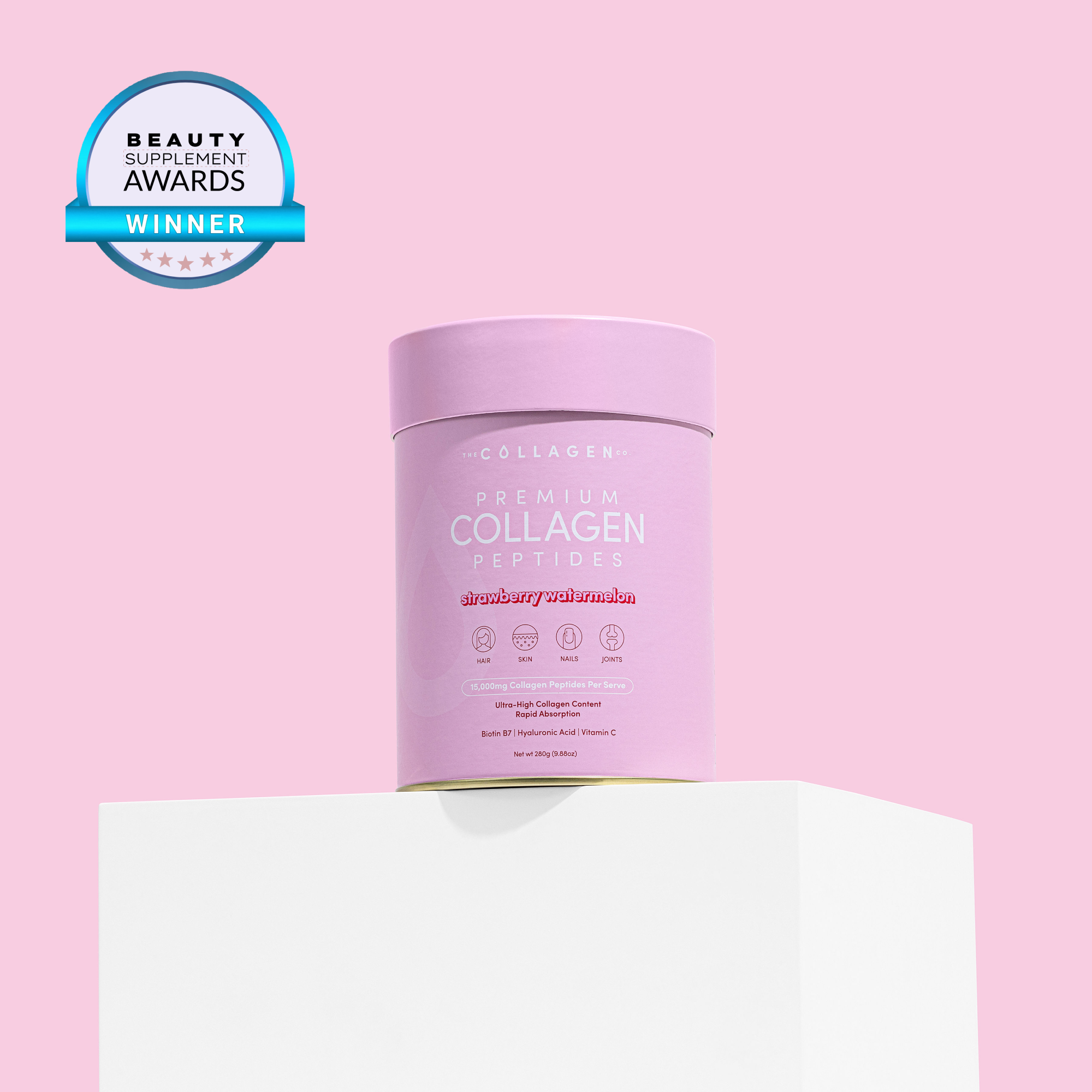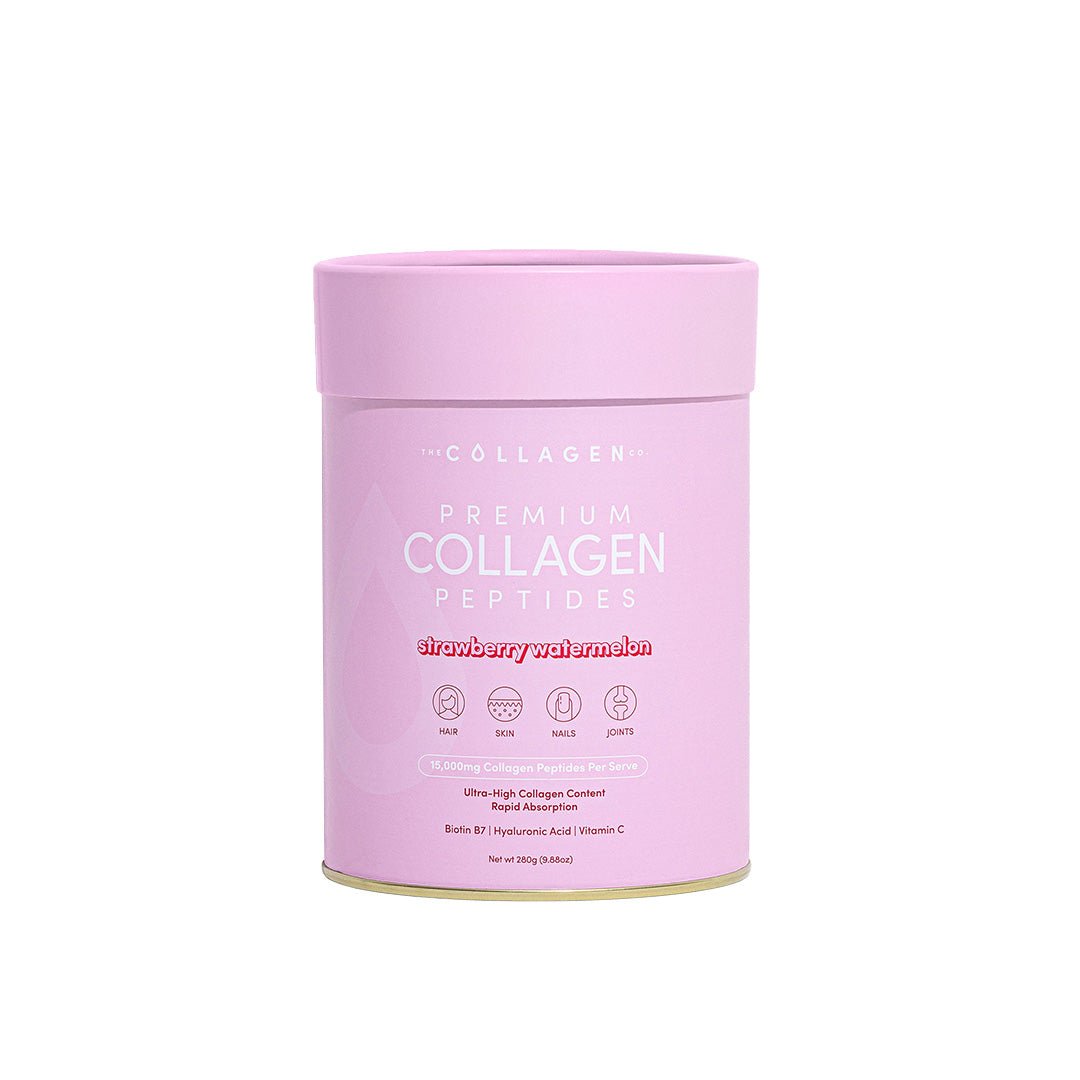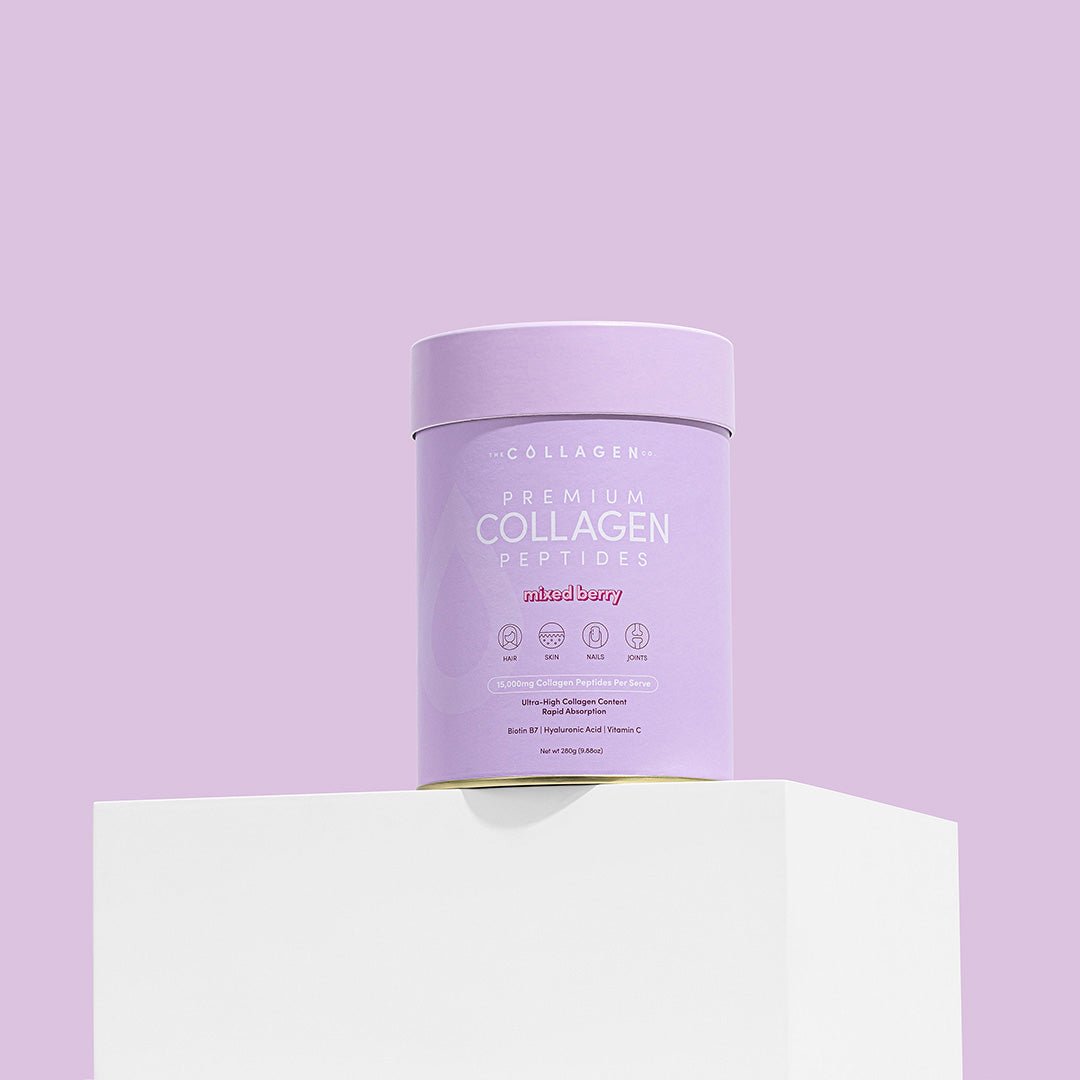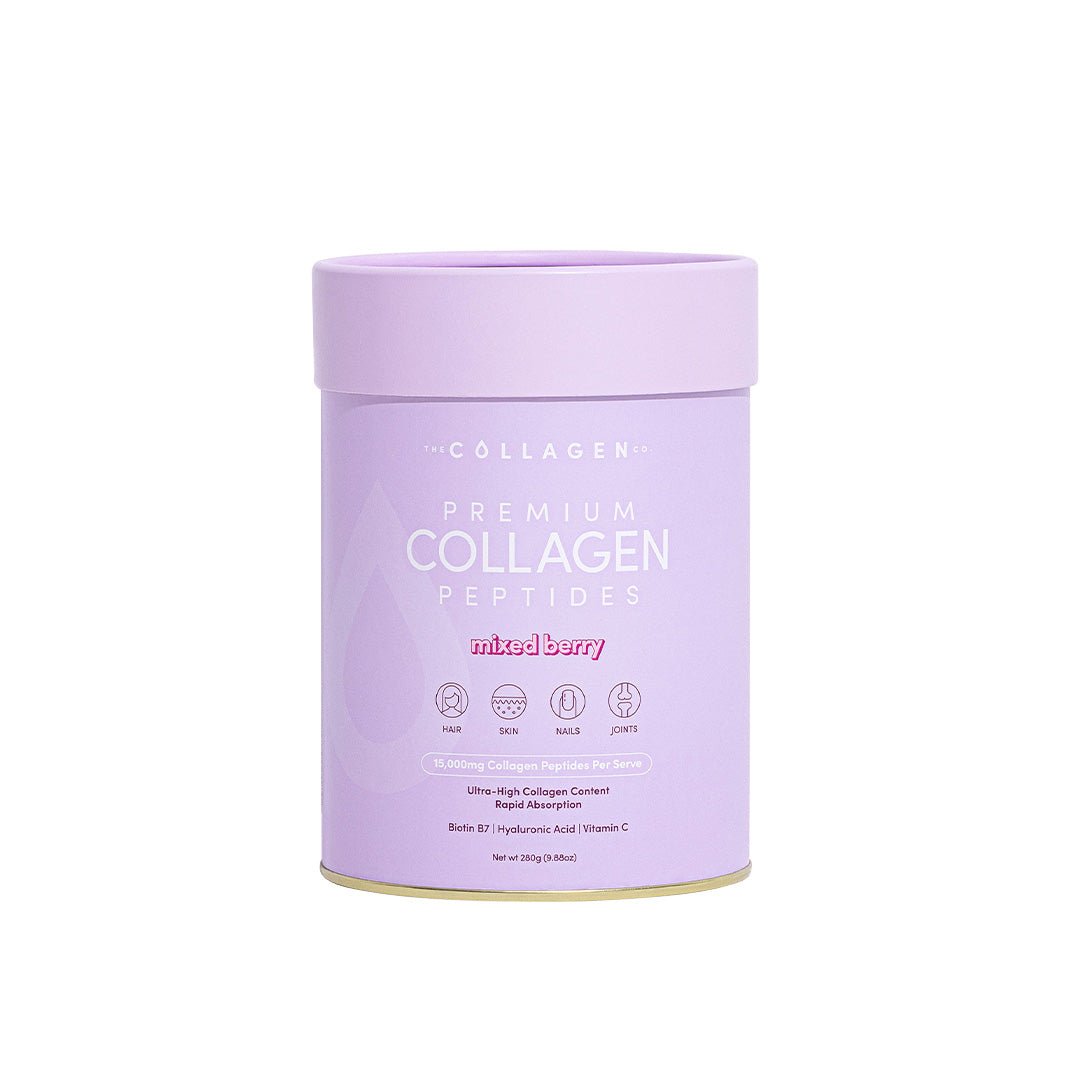Biotin vs Collagen: Which Is Better for Hair, Skin, and Nails?
Posted 27th June 2024

Nearly every supplement promising sleek tresses, lit-from-within skin, and split-resistant nails contains either biotin or collagen — sometimes both. So, a natural question to ask would be, “What works better? Biotin? Collagen? Or a combination?”
That’s what this article answers.
What is biotin? What is collagen?
Before diving into the specifics of biotin vs collagen, let’s first cover the “whats”.
Biotin
Biotin is vitamin B7. It’s one of the essential (this means your body cannot make it on its own and must get it through dietary sources) B vitamins your body needs to:
- Turn the carbs, fats, and proteins in the food you eat into energy
- Regulate cell signaling and gene expression
- Produce keratin, a building block of hair, skin, and nails
Hold on, keratin is a building block of the skin? Sure, hair is made out of keratin, and so are your nails. But isn’t the title of “building block” reserved for collagen?
Well, that depends on the specific layer of skin you’re referring to. Your skin is made up of 3 layers:
Epidermis (top layer): The predominant cell type in the epidermis is keratinocyte, which produces — unsurprisingly — keratin. You can essentially think of keratin as an “armor plating” for your skin that keeps everything you want in (e.g., moisture) while deflecting all things bad (e.g., pollutants).Dermis: The thickest part of your skin. Here’s where you’ll find your collagen and elastin. It also houses your sweat glands, hair, hair follicles, muscles, sensory neurons, and blood vessels.Hypodermis (bottom layer): Deep to the dermis. Contains fat lobules, hair follicles, sensory neurons, and blood vessels.
Collagen
Alright, moving on to collagen.
As briefly alluded to earlier, collagen is the building block of your skin (in the dermal layer). But it’s also so much more than that.
Collagen is one of the most abundant proteins in the body. It’s the main structural protein that forms the connective tissue throughout your body, from skin to bones, muscles, tendons, and ligaments.
Biotin vs collagen for hair, skin, and nails
So, logically speaking, biotin seems to fare better in the biotin vs collagen face-off. It plays an obvious contributing role to hair, skin, and nail health. Collagen, on the other hand, appears only to benefit skin (dermal) health … right?
Does research agree? No.
There is a large, robust body of scientific literature linking collagen peptide supplementation with hair, skin, and nail health.
Here’s a tiny selection of the available research for brevity’s sake:
Skin: Hydrolyzed collagen peptides promote the body’s natural production of collagen, boosting skin’s hydration levels and smoothing fine lines.
Hair: Bioactive collagen peptides may contribute to strong, healthy hair by enhancing follicle cell proliferation and supporting scalp health (a “thicker” scalp offers better anchorage for the hair follicles). Learn how else collagen helps improve hair health here.
Nails: Hydrolyzed collagen peptide supplementation led to better nail health, measured by faster growth rates, reduced breakage, and improved appearance. Wondering how collagen does this when nails are made out of keratin? Get answers here.
What about biotin?
Several small-scale studies have linked biotin to improved hair and nail health. Wait, what about biotin for skin? While there are no biotin-specific studies exploring the vitamin’s positive impact on skin health, there is evidence that it pairs nicely with collagen to provide beauty benefits.
But more on that later. First:
Which should you choose?
If you had to choose one, go for collagen. For 2 reasons:
You can’t get hydrolyzed (i.e., bioactive) collagen peptides from food. Biotin, on the other hand, is readily available in both plant- and animal-based foods, including egg yolks, legumes, nuts, seeds, and bananas. So, depending on your nutritional habits, while you may not get all you need from your diet (30 mcg daily), you’ll still be getting at least some. Compare that to none with hydrolyzed collagen peptides.
- Hydrolyzed collagen peptides provide additional wellness benefits on top of the beauty ones. These include menopause support, flexible joints, strong bones, muscle growth, and even weight loss.
But, hey, who said you had to choose?
Get both collagen and biotin
It’s clear that collagen and biotin have their own unique and individual mechanisms for promoting hair, skin, and nail health. They’re both safe, well-tolerated cosmeceutical bioactives.
So, it still makes perfect sense to take them together. Science agrees.
While biotin isn’t as well-studied on its own compared to collagen, there’s a decent amount of research studying the 2 ingredients together.
This 2019 randomized controlled trial published in Nutrients, for example, found that taking both positively impacted skin hydration, elasticity, smoothness, and density.
Another 2020 study published in the Journal of Medicinal Food found improved collagen structure of facial skin and positive subjective results for skin appearance (e.g., elasticity, wrinkles, and texture).
Bottom line? No need to choose. Just go for a beauty supplement with an efficacious dose of hydrolyzed collagen peptides and biotin.
And … what might that be, you may be asking?
It’s none other than The Collagen Co’s Premium Collagen Peptides, which offer a potent, synergistic blend of 15 mg of hydrolyzed collagen peptides and 50 μg of biotin in every serving.
We’ve made sure it wouldn’t just be your hair, skin, and nails falling in love with our peptides, either. With a mouthwatering swirl of flavors like Strawberry Watermelon and Passionfruit Mango, your taste buds are in for a treat!









































